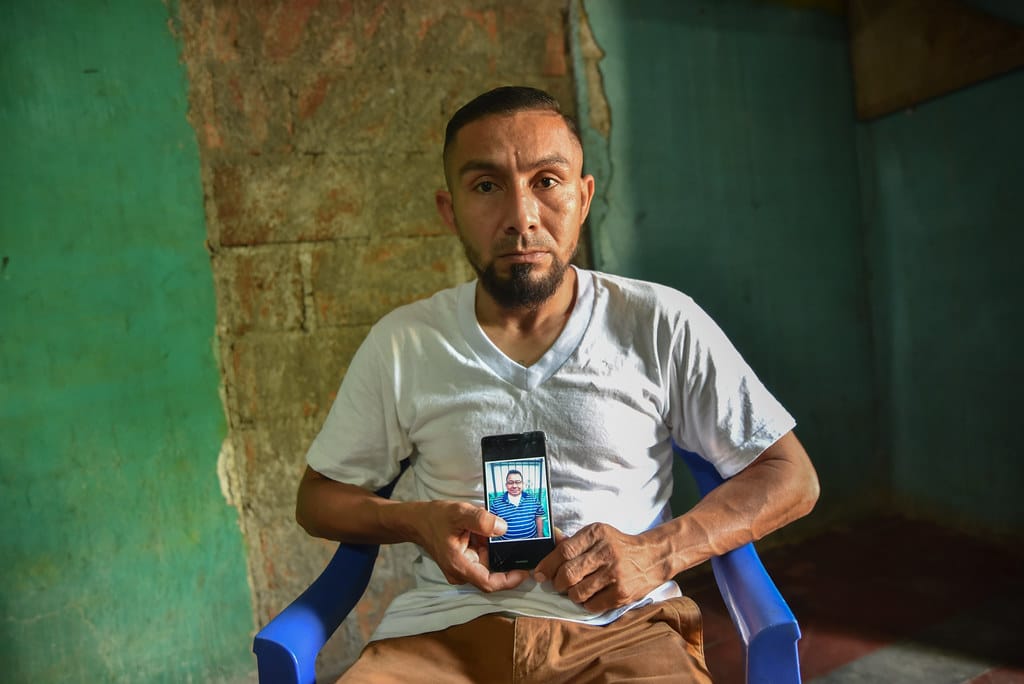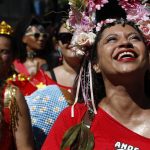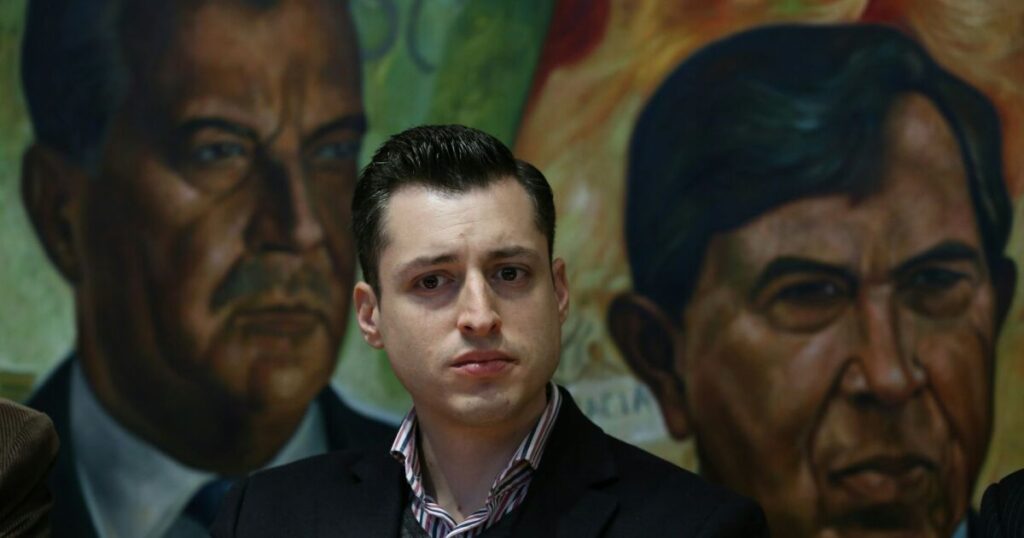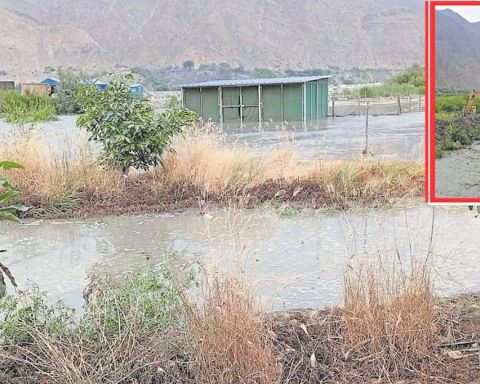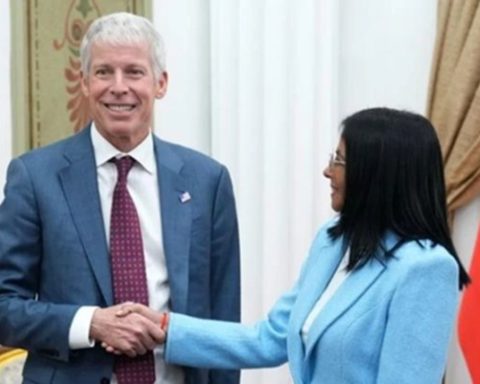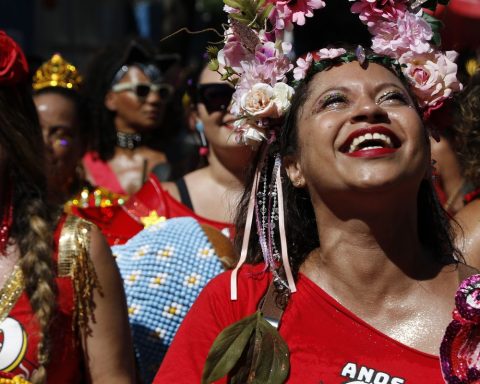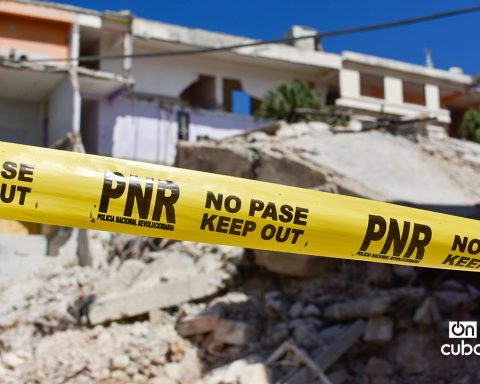The latest post on Facebook Donald Margarito Alvarenga Mendoza it was a video of the song The Logical Song (The Logical Song), by the British rock band supertramp, on Thursday, October 28, 2021. Ten days later, on November 6, the National Police arrested him and, on January 13, 2022, an Ortega judge sentenced him for allegedly inciting “hate and violence”, through Facebook posts and WhatsApp messages.
Alvarenga, 56, a former FSLN guerrilla combatant and former Interior Ministry official in the 1980s, is the first Nicaraguan opponent convicted under the Special Cybercrime Law or “Gag Law” and Law 1055 or “Sovereignty Law”, both approved at the end of 2020. The Chichigalpino was accused of the alleged crimes of “subversion, disobedience and rebellion at the level of conspiracy to affect national integrity.”
A review of Alvarenga’s publications in recent months shows only that the citizen is a fan of rock groups from the 70s and 80s, as well as protest music. His only publications with political overtones were aimed at demanding the freedom of political prisoners, and a call not to vote in the November 7 elections, in which Daniel Ortega and Rosario Murillo secured one more mandate, after arresting the main opposition candidates, civic and political leaders and cancel the legal status of opposition parties.
“Everyone in Chichigalpa —the municipality of Chinandega— knows that my father is an opponent of the government; then, between them (opponents) they share publications. As my father said at the time: ‘I am not responsible for the publications or messages that arrive on my Facebook, because that is a free medium,’” commented Donald Enrique Alvarenga, son of the convicted political prisoner.
Judge’s reasoning
The trial against Alvarenga lasted more than 12 hours and took place in a single day. It was in charge of Rosa Velia Baca Cardoza, judge of the Chinandega Criminal District, in western Nicaragua, who argued that Alvarenga’s “publications, expressions and posts” incited “hate and violence.”
It also alleged that the citizen “fomented meetings with the purpose of creating anxiety, instability, anguish and despair in the population” of Chichigalpa.
The judge initially imposed, on January 18, a sentence of seven and a half years in prison, but a day later, he rectified it and raised it to twelve years. An eight-year sentence “for the crime of undermining national integrity (conspiracy)”, and another four years “for the crime of spreading false news through information and communication technologies”, according to the order. of rectification of Baca Cardoza.
“Some messages were found that I look at, honestly, without any problem. I don’t think that, in reality, the things my dad posted on his Facebook could psychologically harm the population,” said Donald Enrique.
The evidence against Alvarenga was the testimonies of seven policemen, some posts on his Facebook page, and some messages in a WhatsApp group.
Norvin Cruz Ponce, defense attorney for Alvarenga, in an interview with the programto This week – broadcast on Facebook and YouTube by the regime’s censorship – believed that the judge did not take into account the inconsistencies in the evidence provided by the National Police and the Public Ministry.
According to the defender, during the trial, he asked the police if they verified which were the victims frightened by the publication that Alvarenga allegedly made, and if a professional determined that emotional affectation. “They said no.”
The police justified that they could not take “half of the population of Nicaragua, which was psychologically affected by the publication,” according to Cruz, who explained that “it was not necessary to bring half of Nicaragua. Just by bringing several people and showing that they had an emotional affectation through a forensic medical opinion, which they did not offer.
illegal detention
Alvarenga was arrested at his home on the night of November 6, 2021, on the eve of the national votes. However, in the accusation of the prosecutor María Francis Pérez Mojica It was stated that the citizen was arrested on public roads on November 15.
According to the family, Donald Margarito was in an armchair, in the living room of his house, when three officers entered and told him to come with them. The opponent got up, walked to a closet that is about ten steps from the chair, put on a shirt, and left with the policemen, without resisting. Outside the house were two patrol cars full of riot police.
Alvarenga’s house is half a block from the Chichigalpa Mayor’s Office. It is a construction of yesteryear, with high ceilings. At one point there was a cafe, but it was closed in 2020 because the city and other state offices, such as Social Security, prohibited their employees from buying food there.
“The man is caught in his house. They don’t arrest him let’s say,’red-handedin the commission of a crime, therefore, the law has certain limits, I could violate your right to liberty if I really catch you in flagrante delicto”, stressed the defense attorney.
The court record indicates that Alvarenga was denounced by Commissioner Ramón César Quintana, chief of the Chichigalpa Police. However, on the day of the arrest, officers from that delegation informed the family that they did not know of the arrest. The citizen was taken directly to the Chinandega station.
Alvarenga’s son reported that on Monday, November 8, he went to the Chinandega Police, where he was attended by a captain, who informed him that his father “was detained under investigation.” However, he did not detail why they were investigating Donald Margarito, arguing that he could not “talk about that subject.”
confiscate mobile phone
During the illegal arrest, Alvarenga handed over his mobile phone to one of his sons, while putting on his shirt to accompany the officers. This was observed by one of the policemen, who after removing the opponent from his house, returned to the house and threatened the young man with arrest, so that he would hand over his cell phone.
“If Margarito’s (Alvarenga) phone was not seized with a court order, everything that occurs from that moment is nullCruz stated.
According to the trial record, the defendant was confiscated a touch screen cell phone, brand LG K62, light blue, and with capacity for a SIM memory card. The phone was evaluated by a police expert, Sub-Inspector Wilson Martín Díaz Ríos, who allegedly found “the evidence of the crimes.”
“What do they discover on the phone? (At the trial) computer experts from the Police arrived and they say that they look at issues that are adverse to the Government, publications that according to the Special Cybercrime Law in article 30, refer to false or distorted news, “said the lawyer.
“First of all, it had to be shown whether they were true or false, and most importantly, to know who published them, because it appeared in a WhatsApp group called Los Pingüinos,” he said.
The judicial file details that, supposedly, on May 19, 2021, in that WhatsApp group —with the image of a mortar— the message was published: “If the people don’t have peace, neither does the fucking government.”.
According to the defender, “some assertions of criticism of the Government are made in a group called ‘Los Pingüinos’, but not precisely of Mr. Margarito’s number. Even he, when he speaks (at the trial), tells the judge that ‘I cannot take charge of publications that are sent to my phone’”.
police espionage
In his testimony before the judge, Commissioner Quintana revealed that the National Police spied on Alvarenga since July 2019, through “secret sources from Chichigalpa, intelligence officials, and civilians,” including the head of the FSLN in the area, Ramón Pastora.
“(The police officers) speak in the accusation that they were monitoring him since 2019, but the law with which they condemn him was enacted at the end of 2020. So there there is an injury to the principle of retroactivity established in the Political ConstitutionCruz said.
The Special Cybercrime Law, known as the “Gag Law”, it was approved by the National Assembly in October 2020. This legislation establishes up to ten years in prison for citizens who, according to the regime, spread false news through social networks and the media.
Law 1055 or “Sovereignty Law” was approved on December 21, 2020. The Prosecutor’s Office has turned this legislation into a repressive tool, through which they justify the arrests against opponents of the regime.
The Alvarenga family commented that they never had a police presence in their home —as has happened with other opponents of the regime—, so they were surprised to learn that Donald Margarito was under surveillance.
Sandinista fighter
The only incident has been a few pints on the front of his house. This occurred after the citizen protests of 2018, in which Alvarenga participated in Chichigalpa.
“Since there was a cafe in the house, then they scratched the wall, they put ‘Restaurante El Golpeón’, commented Donald Enrique, who added that “my dad was not intimidated and on the Facebook page of the dining room, he changed the name of Las Delicias to El Golpeón. It was a way of showing the government that this (the paintings) did not affect it”.
“He told me: ‘Son, I know where I stand. I know what I’m getting into; maybe, at the time some things may happen, but don’t worry. This is going to change, not all this struggle is in vain,” said the son of the political prisoner.
The Ortega dictatorship is the second against which Donald Margarito fights. The chichigalpino entered the ranks of the Sandinista Front in 1978, when he was 15 years old. He joined the revolutionary cause in the face of the murder of a cousin at the hands of the Somocista Guard. Alvarenga’s relatives assure that he has never stopped being a Sandinista, but that he does not agree with the current leadership of the FSLN.
Alvarenga was chief of officers and cadres of the Ministry of the Interior in the early 1980s., but left the police career to study Agricultural Engineering at the National Agrarian University (UNA). “He decided to leave the Police, but he never abandoned his Sandinista ideals,” said Donald Enrique.
“There were many things that he did not like within the Sandinista Front, regarding how positions and candidacies were appointed. He has always been one of those people who says: ‘let’s vote, let’s choose, and let’s not say that so-and-so is going to do such a thing,’” the son described.
“At the time, he changed from the FSLN to the MRS (Sandinista Renovation Movement). He says that what is happening now in the Sandinista Front is not Sandino’s thinking,” he added.
Last October, Donald Margarito published three times, on Facebook, videos of the song The Logical Song (The Logical Song), which tells the story of a “simple man” who as a young man lived in a world that seemed “wonderful” and “magical”, but who grows up wondering “who is he” and what does he do in a world “ wonderfully gory.”
